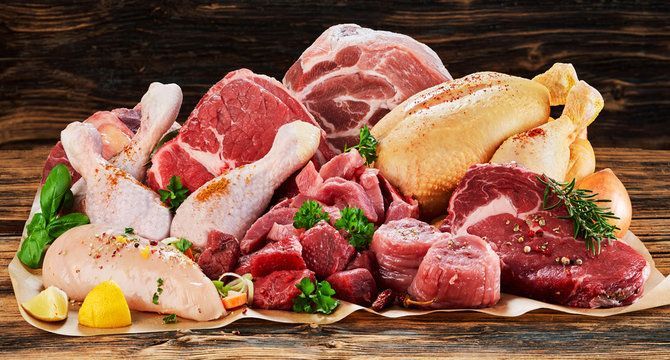The benefits of animal fat
Why you need more animal fat
For decades, fat—especially animal fat—was demonized as a major culprit behind heart disease, obesity, and a host of other health problems. As a result, low-fat diets became popular, with many people opting for plant-based oils and processed alternatives. However, recent research has begun to shift our understanding of dietary fat, shedding light on the importance of animal fat as part of a balanced and nutritious diet.
Let’s explore why you need animal fat in your diet and how it can contribute to better health when consumed mindfully.
1. Rich Source of Fat-Soluble Vitamins
Animal fats are excellent sources of essential fat-soluble vitamins like vitamins A, D, E, and K2, which are critical for various bodily functions. These vitamins play a role in immune health, bone health, skin quality, and even brain function.
- Vitamin A: Found in animal fats like butter, liver, and egg yolks, vitamin A is vital for vision, immune system support, and skin health.
- Vitamin D: Animal fats, particularly from grass-fed animals, contain vitamin D, which is essential for calcium absorption and bone health. In a world where vitamin D deficiency is increasingly common, especially in colder climates, animal fat can be a natural dietary source.
- Vitamin K2: Often found in full-fat dairy products, meats, and egg yolks, K2 is important for heart health and bone metabolism, helping to direct calcium into the bones and away from arteries.
These vitamins are crucial, and consuming animal fats helps your body absorb and utilize them effectively.
2. Supports Hormonal Balance
Dietary fat, including animal fat, is essential for the production of hormones, particularly sex hormones like testosterone and estrogen. Cholesterol, found in animal fat, is a precursor to these hormones. Without sufficient fat intake, the body may struggle to produce adequate amounts, potentially leading to imbalances that can affect mood, energy levels, reproductive health, and overall well-being.
For women, adequate dietary fat is necessary for healthy menstrual cycles and fertility. For men, it supports testosterone production, which is key for muscle maintenance, libido, and overall vitality.
3. Energy Source and Satiety
Fat is a dense source of energy, providing 9 calories per gram compared to 4 calories per gram for carbohydrates and protein. Animal fats, like those found in beef, pork, or lamb, can provide long-lasting energy and keep you feeling full for extended periods. This is especially beneficial for people following low-carb or ketogenic diets, where fats become the primary fuel source.
The satiety effect of fat also helps regulate appetite and prevents overeating, which is often associated with highly processed, low-fat foods that tend to leave people feeling unsatisfied.
4. Contains Beneficial Fatty Acids
Animal fats provide a variety of fatty acids that are essential for health, including:
- Omega-3 Fatty Acids: While commonly associated with fish, omega-3s can also be found in grass-fed meats and pasture-raised animal products. These fatty acids are anti-inflammatory and support heart, brain, and joint health.
- Conjugated Linoleic Acid (CLA): Found in meat and dairy from grass-fed animals, CLA has been linked to improved body composition, including reduced body fat and increased lean muscle mass. It may also have anti-cancer properties and support heart health.
- Saturated Fat: Although saturated fat has been vilified for years, recent research shows that it can play a positive role in heart health, provided it's part of a balanced diet. Saturated fats help with cell membrane structure, brain function, and the absorption of fat-soluble vitamins.
5. Supports Brain Health
Your brain is made up of nearly 60% fat, and it requires healthy fats to function optimally. The cholesterol found in animal fat is crucial for creating synapses, the connections between brain cells that allow for learning, memory, and other cognitive functions. Additionally, omega-3 fatty acids, often found in fatty fish and grass-fed animal products, are known to support mental clarity, focus, and mood stability.
Emerging research also links adequate fat consumption, including animal fat, with reduced risks of neurodegenerative diseases like Alzheimer’s.
6. Heart Health and Balanced Cholesterol
Contrary to the long-held belief that animal fats lead to heart disease, newer studies suggest that not all saturated fats are harmful and that some types may actually support cardiovascular health. For instance, replacing processed trans fats and high amounts of refined carbohydrates with natural animal fats can improve cholesterol profiles by raising HDL (the "good" cholesterol) and converting LDL (the "bad" cholesterol) into a less harmful form.
While it's true that overconsumption of certain animal fats can pose health risks, moderate consumption of unprocessed, high-quality animal fats—especially from grass-fed or pasture-raised animals—can have neutral or even beneficial effects on heart health.
7. Minimally Processed and Nutrient-Dense
One of the best things about animal fat is that it's typically minimally processed, especially when compared to many plant-based oils like canola or soybean oil, which undergo extensive chemical processing. Lard, tallow, butter, and ghee from quality sources are closer to their natural state, making them superior choices for cooking or as part of a balanced diet.
Moreover, animal fats from well-raised animals are rich in nutrients, unlike many industrial seed oils, which are devoid of essential nutrients and contain high amounts of inflammatory omega-6 fatty acids.
8. Versatile for Cooking
Animal fats like butter, ghee, lard, and tallow are not only flavorful but also stable at high temperatures, making them ideal for cooking and frying. Unlike vegetable oils, which can break down into harmful compounds when exposed to high heat, animal fats remain stable, making them a safer and more healthful choice for sautéing, roasting, and other high-heat cooking methods.
Conclusion
Incorporating animal fat into your diet can provide a wide range of health benefits, from supporting hormone production and brain health to delivering essential vitamins and providing long-lasting energy. While moderation is key, it's important to recognize that high-quality, natural animal fats—especially from grass-fed or pasture-raised animals—can be a vital part of a balanced diet. Rather than avoiding animal fats, embrace them in their unprocessed forms to nourish your body with essential nutrients and healthy fatty acids that promote overall well-being.











